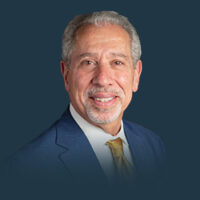In the financial industry, we sometimes see investors change their priorities, shifting the purpose of their investing to fulfill higher purposes as they seek more fulfillment and happiness in their lives.
For many, the main goal behind investing is retirement, the simple act of accumulating the financial resources necessary to support the next stage in life. People set aside money each year, taking comfort in knowing they will have financial security in the future while they spend what is left on other things that bring more immediate pleasure.
There is no doubt that saving for a prosperous retirement is a sure route to contentment. But is that all it takes to ensure happiness in life?
Abraham Maslow would probably say it is not. Many of us might remember the late American psychologist and philosopher from our studies in school. He was known for the Hierarchy of Needs theory he published in 1943.
According to Maslow, people must fulfill the basic needs of human survival – food, shelter and clothing. After that, his theory suggests there are other needs that must be attained to achieve happiness. Matters such as social status, achievement, creativity, passion and higher purpose become more important to those fortunate enough to have a roof over their heads and plenty to eat.
Recent literature expands Maslow’s thinking to include three different types of happiness: pleasure, passion and higher purpose.
Pleasure may be the most obvious form of happiness. We can achieve pleasure through material objects, enjoyable activities, or other transient inducement, but pleasure can quickly fade after the new car smell goes away, the vacation ends, or the championship football season is over.
Many of us find happiness through the passion we have for our jobs, our hobbies or other type of endeavors that promote energy and inspiration. But, as everyone knows, seasons of life change along with the shifting winds of emotion. One day, we might discover our passion is gone, leaving us searching for a new source of happiness.
While pleasure and passion can be transitory, working for a higher purpose can be an extended source of happiness that comes from being part of something bigger than ourselves.
Investors have always found pleasure in watching their investment portfolios grow with our economy and the markets. Some of them have compounded their fulfillment by investing for a higher purpose and formalizing plans to leave a legacy to family members or specific charitable causes.
But investing to help others takes planning and communication, and that does not always happen effectively.
For example, 88% of wealthy investors have an estate plan in place, but 40% of them say their plans are not comprehensive enough. Almost 50% say they don’t fully understand their own plan, and more than half have not properly documented personal property and assets. Meanwhile, they have no documented distribution instructions, leaving room for family conflict. Only one-third have named a power of attorney, and just 3% of wealthy business owners have a business succession plan.
Even the well-intentioned have loose ends to address, but there is plenty of help available to resolve them. People can work with attorneys, tax experts and financial advisers who specialize in estate planning.
By shoring up plans and communicating with family and others, investors can provide clearer guidance for investment decisions, identify future goals, prevent conflicts and most importantly, create lasting happiness.
